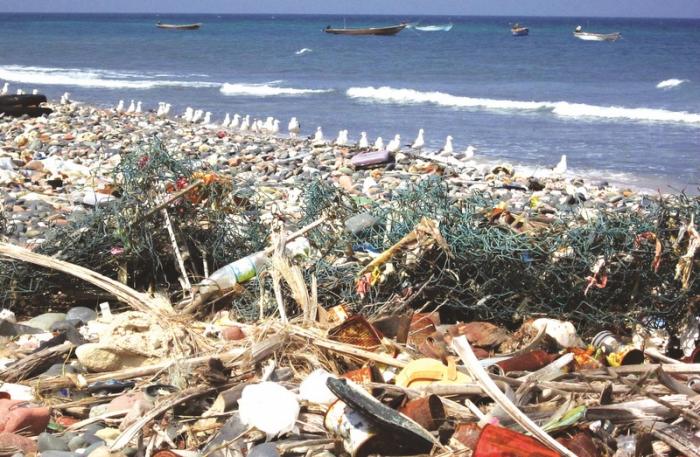On Deck: Unprecedented boom in ocean waste

PHUKET: I’ve written on the topic of ocean waste before. In fact, I first wrote on the topic more than 18 months ago, but it appears that little has changed.
Ocean waste is everyone’s responsibility – not just divers, sailors, or swimmers, but everyone who in some way makes a living from the island of Phuket.
Phuket’s lifeblood is tourism, its key assets the beaches and the Andaman Sea. When they are threatened, people should sit up and take note, and more importantly, take action.
Readers have no doubt heard of the floating waste pile heading through the Gulf of Thailand. At 10km long, it’s a monster and hard to ignore. Thailand’s Marine Department has been out there on the high seas doing its best to break it down and clean it up. Located approximately 8km offshore, it has been no small effort from the Marine Department and they deserve credit.
But is this really the responsibility of one government department?
No doubt some will point to the fact that this 10km waste trail has come from somewhere else to Thailand, and they are, in part, right. The fact conveniently overlooked is the movements of the ocean.
For those who are unaware of this fact, oceans do move. Additionally, they are all linked. To those people blaming Thailand’s waste problem on someone else, stop and look in the mirror.
Ocean Conservancy recently reported that 60 per cent of the plastic waste in the oceans comes from just five countries: China, Indonesia, the Philippines, Vietnam and Thailand.
Thais live a throw-away lifestyle. Food Panda, UberEats and Line Man are just some of the food delivery services available in Bangkok. Add to that the regular vendor stalls you can find anywhere in the country, where a fried rice comes with three plastic bags and a polystyrene box – and that, too, for ‘free’.
But it’s not free. There’s a cost – it’s called waste and it needs to be addressed at source. This requires central government and local government buy-in. Not lip service, but genuine change and leadership is required.
Ocean waste is a problem for everyone, however. With regard to the island’s marine tourism, day trip tour boats, diving tours and charter yachts are likely the most immediate source of waste in the Andaman Sea. More often than not, it’s an accident – a customer knocks a plastic bottle off a table and it falls into the water; a plastic bag blows away in the wind.
Here are three simple ideas how the marine industry can help make a difference.
Ban water bottles on boats
Water bottles are a curse for the marine environment. Tour operators must provide refillable water containers for customers. It’s become a fashion statement in gyms the world over to bring your own refillable container. We must make it fashionable for marine tourists too.
Ban plastic bags
Check tourists when they arrive and don’t allow any plastic bags on the boat. This already happens in some national parks in Thailand – I have experienced it in Krabi. The same must be done for the Andaman Sea.
Educate customers
Educate guests to throw their garbage in the relevant containers on the boat, and then the boat crew to dispose of it onshore appropriately. Have crew proactively walk around the boat asking for garbage. This is common practice on airlines, make it so on boats.
None of the above requires significant cost; they require an investment of will and time, as well as buy-in from both private and public sectors.
Duncan Worthington is a long time Phuket resident and, through Infinity Communications, (infinity-comms.com) consults to leading consumer brands, hospitality and marine clients in Thailand. In his ‘spare time’ he runs the marine portal MarineScene.asia. #OnDeckPhuket
— Duncan Worthington
Latest Thailand News
Follow The Thaiger on Google News:


























